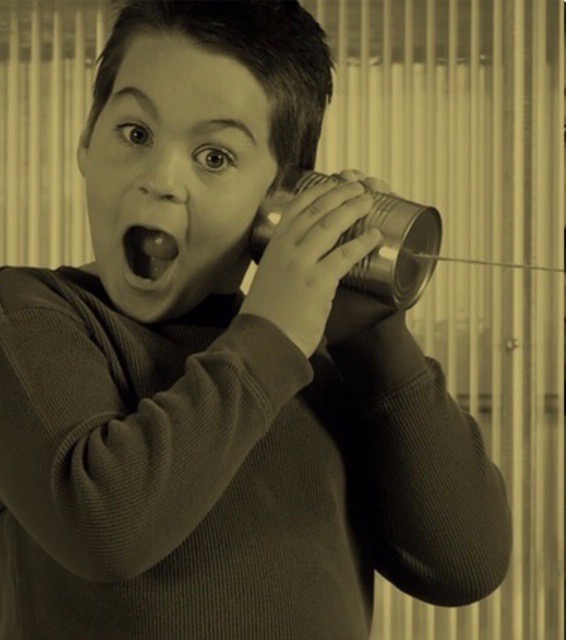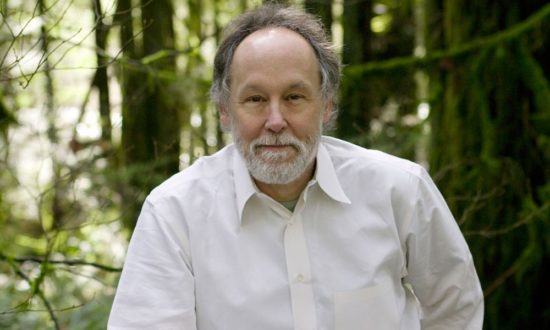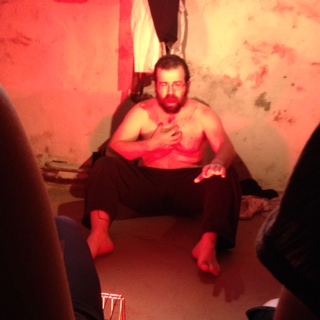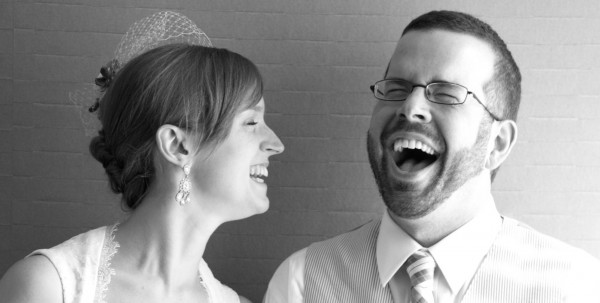When you hear an argument on Tuesday and its opposing argument on Thursday, it’s always a challenge to arrange a further date where you can line them up at opposite sides of the room while you sit in the middle to figure out what you think and feel about the issue. Rescheduling your attention like this always seems to get lost in the shuffle.
On the other hand, the opportunity to listen, process and react almost immediately to opposing points of view is what can make live debate and virtual encounters with discordant perspectives both clarifying and satisfying.
They may also be ways to move beyond the polarizing shouting matches that characterize much of American democracy today.
When an issue “gets joined” you can figure out where you stand either on the spot or while continuing the conversation with yourself and others immediately thereafter. All you have to do is build this new information and its subtleties into your own perspective once you’ve had the chance to sleep on it.
When it comes to processlng opposing views, time compression seems critical. Being part of a live audience interacting with live “actors” or encountering real people in a virtual world is too. Another factor is your decision “to make yourself available to their persuasion” by the physical act of showing up, something you rarely do when you’re watching people testify on the other side of a screen. On each of these “live” or “almost alive” occasions, you’ve chosen to immerse yourself in a world of different perspectives where you’re open to changing your mind.
A final factor is also critical. Theater that is built on counterpoint stories and virtual worlds that make us confront our own preconceptions are jarring experiences. Both demand that your thoughts and feelings connect across a broader waterfront than you recognized before. They challenge moral certainties and provide building blocks you can use immediately to construct a more nuanced point of view. Their wake-up calls can often make you behave differently too—impacting the jobs you do as community members or citizens. They offer highy engaging ways to figure out where you stand and what to do next.
All of these dynamics were apparent in a recent theater production in Portland Oregon, where actors playing members of the community and its local police force held the stage in front of an audience from that same community, told their distinctive stories and changed some minds.
Similar changes in perception became evident when people put on the virtual reality (VR) headsets that were recently developed by a California company. VR technology can take you places and put you among people you may think you know about until you are literally walking among them at Rikers Island prison, on the US-Mexico border, or in a Syrian refugee camp.
What used to seem black and white and came cloaked in moral certainties can be shaken into reconsideration by these “live” or “virtually alive” experiences. Abstraction and over-simplification are no longer quite as possible when issues that we thought we understood have faces. Once we’ve learned more and have the experience to know better, we may no longer wish to view ourselves (or be viewed by others) as being so cold in our certainties or so removed from the blood, sweat and tears of most people’s lives.
Do these kinds of experiences offer a way to move past the knee-jerk polarities that undermine our collective purpose?
Are they vehicles for helping at least some of the undecided and disengaged in this country to make up their minds and help build a future that they want instead of leaving their prospects to others?
Finding Shared Human Perspectives While Looking At and Listening To One Another
The chasms between diverse communities and the police who are charged with protecting them yawn widely across America. In Portland, some creatives in the performing arts and forward-thinkers in law enforcement came together to try and reduce them. Their approach: a stage adaptation of the dueling perspectives, only this time with several rarely heard points of view along the stark divide—including the witness provided by minority police officers who, in more ways than one, have come to embody it.
Much of this story about perspective building in the community, and all but one of the quotes here, come from a PBS NewsHour segment that ran on the same day in August that New York City police officer Daniel Pantaleo was fired for his involvement in subduing Eric Garner, an arrest that ended in Garner’s death.
Kevin Jones and Lesli Mones founded the August Wilson Red Door Project, a theater company, to provide a platform for addressing issues of importance to the City’s African American residents. The other driving force in this story is Robert Day, the former deputy chief of the Portland Police Bureau. Jones and Mones asked him to gather perspectives from policemen who serve in minority neighborhoods like theirs and he pursued their invitation with relish.
What ultimately came together in one performance were a series of monologues from two different plays. “Hands Up” was written by African Americans about their experiences being racially profiled by police. “Cop Out” tells the stories of individual police officers when they are wearing their uniforms as well as the lingering effects after they take them off.
Jones and Mones each described the intent behind bringing witnesses from both perspectives onto a single stage. Said Jones:
We’re not dividing the story into two sides, right, the good guys and bad guys. On both sides, we have a group of people who feel that their stories are not being told, that they’re being vilified, that they’re being shunned, that — and nobody wants to really hear their story.
For her part, Mones addressed early criticism she’d heard from the African-American community in an earlier interview with the Portland Mercury:
From a social power perspective, you can’t compare the experiences of the two groups of people. But from a shared human perspective, the feeling of being unseen, depersonalized, and stereotyped is something both groups can relate to. It’s in the DNA of Red Door to honor a multiplicity of viewpoints, because we know it’s imperative in producing a healthy racial ecology for the community.
Four excerpts from the monologues suggest the power of this “shared” and “deeply human” approach.
– Community member: ‘They slammed me to the ground. One of the officers had his foot on the back of my neck. Another officer pointed a gun to the back of my head and said, ‘Move one inch and I will blow your head off.’ Oh, I went into survival mode. I tried to convince them I was one of the good ones.’
` Policeman: ‘I used to think nothing about being a cop would shake me up. But when you arrive on scene and watch your partner pull an infant out of a microwave because his meth head father couldn’t stop the kid from crying, your lens gets colored.’
– [A community member asks everyone in the audience to raise their arms in the air]:
A voice representing the police: ‘Hands up.’
Members of the community: ‘Don’t shoot.’
A voice representing the police: ‘Hands up.’
Members of the community: ‘Don’t shoot.’
-Policewoman: ‘The only reason I carry a gun if for protection, primarily mine, sometimes yours, sometimes, in highly specific circumstances, like an active shooter, or –no, that’s about it.’
The theater company is hoping to take performances of these combined monologues across the country, starting later this year. However, the fundraising and logistical hurdles that need to be surmounted before the show can hit the road are daunting. But no one provides a better reason for persevering than former deputy police chief Day:
We’re touching on sort of the third rail conversations of race and policing. And I think they are conversations that are happening in African-American families in homes and communities, and I know they’re happening in police communities, because I have heard them, been a part of them, I have seen them.
But they’re not happening publicly, and they’re not happening generally across from each other, because of the sort of high-voltage nature of them. So, the theater allows us to put it all out there. We can speak what has been left unsaid.
Only when “it’s all out there” and being processed by the folks in the audience who are most impacted by it can there be any hope of actually “seeing the other,” identifying shared objectives, and pursing them together.
The Issues Are No Longer Vague. They Feel Like Lived Experiences
With VR or virtual reality, the divides aren’t personified on a stage and the processing doesn’t begin when you’re seated in front of it. Everything you need for your views to be jarred into a broader perspective is brought into the perceptual space “between your ears” by this advanced technology.
Emblematic is a VR studio that was founded by Nonny de la Pena and is based in Santa Monica. De la Pena was profiled as one of 2018’s top innovators by the Wall Street Journal, both for developing groundbreaking VR technology that enables you to feel like you’re moving through a real space (instead of just standing in it) and for the rationale behind her inventiveness.
The author of the profile explained her intentions this way:
The idea is to put people in places they wouldn’t normally find themselves, experiencing situations they would not normally experience. Often, these are related to urgent issues, issues that are, in their sprawling complexity, seemingly difficult to grasp or even care about. But suddenly, there you are, standing in a cell in solitary confinement, or at the foot of a melting glacier, or before a protest line outside an abortion clinic. When you are in these places—hearing the anguish of a prisoner, the calving of a glacier, the vitriol of the protesters—the issues no longer seem like issues, with vague names attached, like prison reform or global warming or women’s health. Rather, they seem like lived experience, like people you’ve met and places you’ve been—like memory.
Within Emblematic’s VR headsets, the perspective you’ve brought with you is jarred by the unfamiliar in “real” time and you’re invited to start responding immediately to the flood of new information that’s washing over you. Particularly when you enter environments with other people in them, it feels like you are entering a reality as it’s being lived by someone else, providing unprecedented opportunities for connection and empathy.
Before you put the headset on, you also know where you’re going and have made yourself available to broaden and deepen your point of view. You find a new place to stand in the neurological mindspace between your thoughts and feelings about this issue before and the virtual experience that you’re having now. As long as it’s programmed as an exercise of free will, this technology can help you to make up your mind or intensify your most important commitments.
Unlike the challenges of putting the “Hands Up/Cop Out” show on the road, the financial and logistical challenges for de la Pena and Emblematic are likely making their technology cheap enough and portable enough that it can someday travel on its own to wherever people are undecided or simply want to know more. They (and other monitors) will also need to mind the gap between its use for illuminating an increasingly complex world and simply manipulating our reactions to it.
Sometimes, groundbreaking innovations like de la Pena’s have their roots in childhood, and so it is with the story of how she first learned the value of differing perspectives–even when one of them is hers. The Journal’s profile of her actually begins with it:
When Nonny de la Peña was in junior high, in West Los Angeles, her math teacher wrote a note home to her parents. ‘It was about something I’d rebelliously done,’ she says. ‘It was something minor, like speaking up, or speaking too loudly.’ Her father read the note, then turned the paper over and looked at her. ‘This is what she says you do, he said to me,’ de la Peña recalls. ‘Tell me about her. What does she do?’ De la Peña listed some of her own unflattering observations about the teacher, and her father wrote them down on the back of the note, so that now the piece of paper contained two notes, two different perspectives. Then her father signed it. ‘So what does that make you do? Of course [says de la Pena], it makes you think about the structure of things…. Of how situations are multidimensional.’
Her father knew, and early on it seems that she came to know too, that the truth can usually be found somewhere in the space between perspectives.
+ + +
I’ve written before about the space “where we can make up our reasonable minds” because I’m concerned (and sometimes alarmed) about how our demonizing of those we disagree with has disabled us from building anything of consequence in America today. It also comes from how others’ “not caring enough to have points of view” further undermines “what those who do care enough” hold in common. These sentiments were behind my post on the remarkable public exchange between two academic friends, the left-leaning Cornel West and the right-leaning Robert George, and what we all gain (but seldom enjoy today) from politically charged conversations, as well as another about the clarifying nature of dissent.
These arguments (and the one today) feel personal to me.
When I abandon my reasoned points of view, or don’t bother to come up with them anymore, I cede control of my future and my family’s future to somebody who may know less and care less. As long as I hold this right and it has not been taken away from me by those who want to control my mind, I’d be a fool not to exercise it.
Where I decide to stand and what I decide to do about it in the work I do and the way I live are among the most valuable contributions that I can make to myself and others. As long as it’s mine, I’ll continue to find the space for evolving my perspectives because it’s part of feeling alive.
This post was adapted from my September 15, 2019 newsletter. When you subscribe, a new newsletter/post will be delivered to your inbox every Sunday morning.









